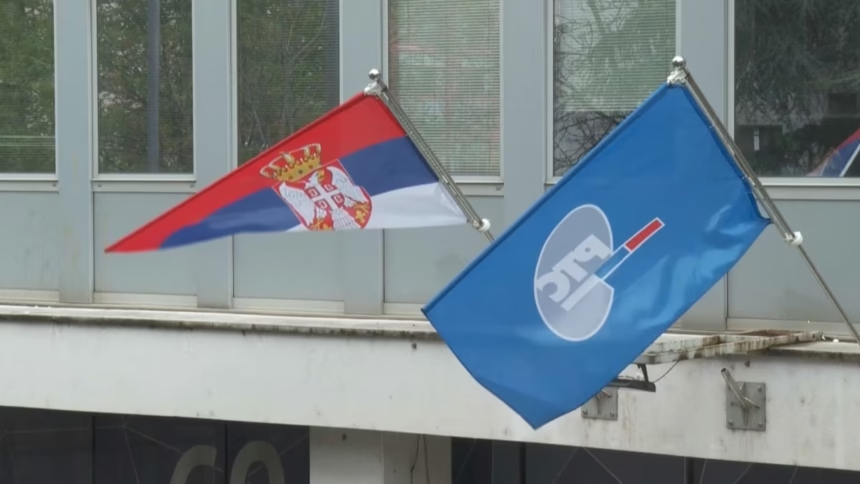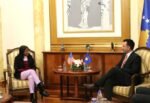Tensions escalated at the Serbian public broadcaster RTS after a cameraman was expelled from a press conference held by President Aleksandar Vučić for wearing a badge depicting a bloody hand—a symbol intended to protest corruption. Following the incident, a segment of RTS staff publicly defended their colleague on the Instagram page Naš protest, calling him a consummate professional and emphasizing their support.
The staff criticized Vučić for misinterpreting the badge as offensive, noting that the symbol was meant to signal a call for the eradication of corruption, not to mock institutions. They contrasted this with what they see as Vučić’s own repeated disrespect toward citizens:
“Mocking institutions is the bloody middle finger that high public officials have directed at the people. That did not bother you, did it?”
Staff also highlighted Vučić’s history of personal attacks against journalists. They noted an earlier incident in which he insulted a female colleague, calling her an “imbecile,” and offered no apology, instead doubling down with additional insults.
“You come to RTS whenever you please, deliver monologues, and further humiliate both journalists and the programs in which you appear,” they wrote.
The statement clarified that the expelled cameraman is not a target for dissent but part of a thinking, independent segment of RTS staff.
“He deserves every respect. Anything less, we will respond to. We are not nodding heads. We are not microphone holders. We are not for sale. Understand this once and for all,” the staff declared.
Vučić, during the press conference, framed the expulsion as a matter of protocol, instructing journalists to dress “decently” and to avoid symbols that allegedly insult state institutions. He warned that any future violations would result in similar exclusion:
“I ask that cameramen be properly dressed and do not wear symbols that offend the institution of this country, as we will remove them every next time. Today he was not allowed in, and in the future, he will not be allowed either unless he behaves properly.”
Critics argue that Vučić’s actions reflect a broader pattern of controlling the public narrative and intimidating independent media, raising concerns about press freedom in Serbia.







